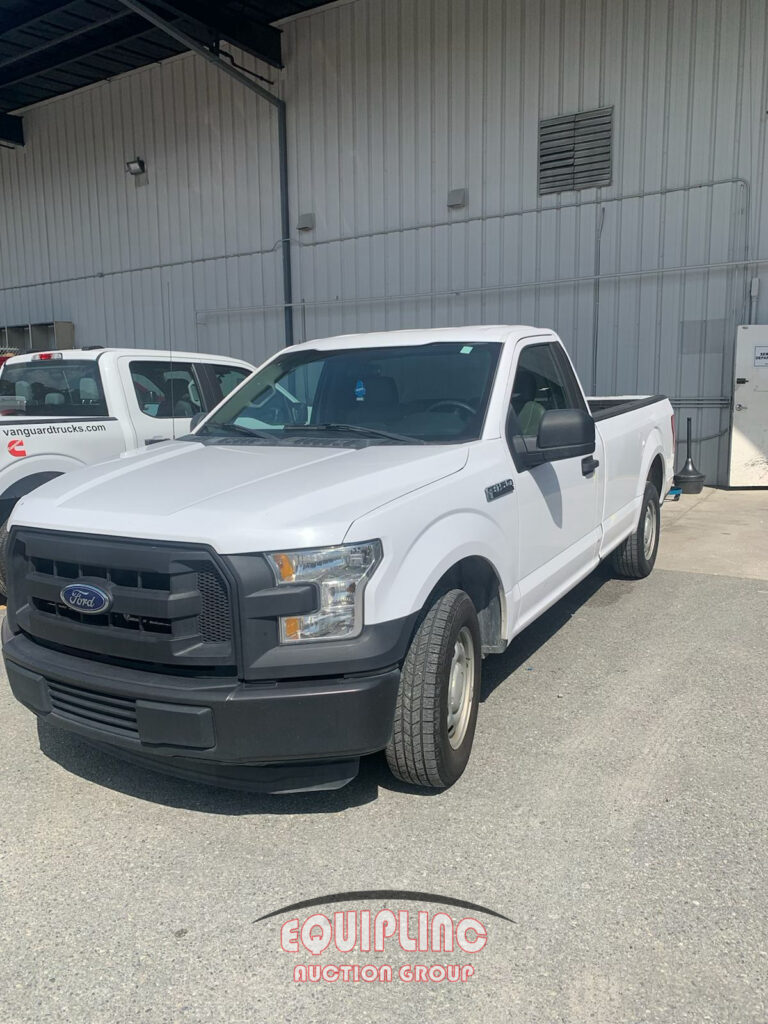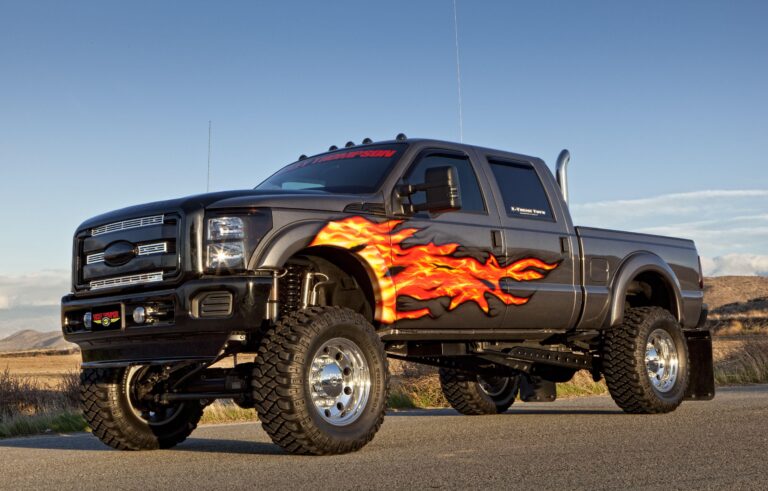Junk Cars And Trucks For Sale: Unearthing Value in the Unconventional
Junk Cars And Trucks For Sale: Unearthing Value in the Unconventional cars.truckstrend.com
The phrase "junk cars and trucks for sale" might conjure images of rusted-out husks decaying in a forgotten lot. However, for a discerning buyer, a mechanically inclined individual, or even an environmentally conscious citizen, these seemingly derelict vehicles represent a vast, often untapped, reservoir of value. Far from being mere scrap, junk vehicles offer unique opportunities for cost savings, parts acquisition, ambitious restoration projects, and even a significant contribution to sustainable practices. This comprehensive guide will delve into the world of junk cars and trucks for sale, exploring their benefits, where to find them, how to navigate the purchasing process, and the crucial considerations for making a smart investment.
Understanding the "Junk" in Junk Vehicles
Junk Cars And Trucks For Sale: Unearthing Value in the Unconventional
Before diving into the market, it’s essential to define what constitutes a "junk" vehicle. It’s not a single, monolithic category but rather a spectrum of conditions. Generally, a junk car or truck is a vehicle that is no longer roadworthy, either due to extensive damage, mechanical failure, high mileage rendering repairs uneconomical, or a salvage title.
- Non-Running/Mechanically Damaged: These vehicles might have a blown engine, transmission failure, significant electrical issues, or other major mechanical problems that prevent them from operating. The cost of repair often exceeds their market value.
- Collision Damaged/Insurance Write-Offs: Vehicles involved in accidents severe enough that insurance companies deem them a "total loss" are often sold as junk. They might have structural damage, deployed airbags, or extensive bodywork required. These typically carry a "salvage" title.
- High Mileage/End-of-Life: Even if still running, an older vehicle with extremely high mileage might be considered "junk" if its components are nearing the end of their lifespan, making it a high-risk purchase for regular use.
- Missing Parts/Vandalized: Vehicles stripped of valuable components or vandalized to the point of being unusable for road-going purposes.
- Salvage Title vs. Junk/Scrap It’s crucial to understand the distinction. A salvage title indicates the vehicle was totaled but can potentially be repaired and re-titled for road use after a rigorous inspection process. A junk or scrap title (or lack of any road-legal title) typically means the vehicle is intended solely for parts or scrap metal, and re-registration for road use is highly improbable or impossible.

Owners sell these vehicles for various reasons: they lack the time or resources for repairs, insurance declared it a total loss, or they simply want to clear space and recover some value from a non-functional asset.
The Many Benefits of Buying Junk Cars And Trucks For Sale
The appeal of junk cars and trucks for sale lies in their potential for value, often far beyond their initial low price tag.
- Unbeatable Cost Savings: This is arguably the primary draw. Junk vehicles are significantly cheaper than their operational counterparts. For a fraction of the cost, you can acquire a vehicle that, with some work, could become a reliable runner, a dedicated parts donor, or a unique project.
- Abundant Source of Affordable Parts: For mechanics, DIY enthusiasts, or owners of specific makes/models, junk vehicles are a goldmine for spare parts. Rather than buying new, often expensive, components, you can strip functional parts like engines, transmissions, alternators, interior pieces, or body panels directly from a donor vehicle. This is particularly valuable for older or rare models where new parts are scarce.
- Ideal Project Vehicles: Dream of building a custom hot rod, an off-road beast, a track-day car, or restoring a classic? Junk cars and trucks provide the perfect starting canvas. With the framework already in place, you can focus on mechanical upgrades, bodywork, and personalization without the prohibitive initial cost of a running vehicle.
- Scrap Metal Value: Even if a vehicle is completely beyond repair, it still holds intrinsic value as scrap metal. Salvage yards and recyclers pay by weight, ensuring that even the most dilapidated vehicle isn’t entirely worthless. This promotes responsible disposal and resource recovery.
- Environmental Responsibility: Buying and reusing parts from junk vehicles, or even recycling the entire chassis, contributes significantly to environmental sustainability. It reduces the demand for new manufacturing, conserves raw materials, and prevents usable components from ending up in landfills.
- Learning Opportunity: For aspiring mechanics or those looking to expand their automotive knowledge, working on a junk vehicle offers invaluable hands-on experience. You can experiment, troubleshoot, and learn without the pressure of potentially damaging an expensive, roadworthy vehicle.
Where to Find Junk Cars And Trucks For Sale
The market for junk cars and trucks for sale is diverse, spanning both traditional and digital avenues.
- Salvage Yards and Auto Wreckers: These are the most common and often best places to find junk vehicles. They specialize in buying, dismantling, and selling parts from damaged or non-running cars. Many also sell complete vehicles for parts or repair. Their inventory is usually vast and constantly changing.
- Online Auction Sites (Copart, IAAI): Platforms like Copart and IAAI (Insurance Auto Auctions) specialize in selling vehicles from insurance companies, banks, and rental car companies. These often include collision-damaged, flood-damaged, or recovered theft vehicles. While some require a dealer license, many also offer options for public buyers or through licensed brokers.
- Online Marketplaces (Craigslist, Facebook Marketplace, eBay Motors): Private sellers frequently list non-running or damaged vehicles on these platforms. Look for listings under "parts only," "mechanic special," "non-running," or "project car." Be diligent and ask many questions, as these are peer-to-peer sales.
- Local Classifieds and Newspapers: While less prevalent than online methods, local papers or community boards might still feature listings for junk vehicles.
- Tow Yards and Impound Lots: Vehicles that have been abandoned, impounded, or involved in incidents and not claimed by their owners are often sold at auction by tow yards or police departments. These can be good deals but require quick action and careful inspection.
- Word-of-Mouth/Local Mechanics: Developing a relationship with local mechanics or auto body shops can be beneficial. They often know of customers looking to get rid of non-running vehicles or might even have some themselves.
Navigating the Purchase: A Step-by-Step Guide
Purchasing junk cars and trucks for sale requires a methodical approach to ensure you get what you pay for and avoid common pitfalls.
- Define Your Purpose: Before you even start looking, decide why you want a junk vehicle. Is it purely for scrap? For specific parts? As a restoration project? This clarity will guide your search and inspection process.
- Research the Make/Model: If you’re looking for a project or parts, research common issues, parts availability, and repair costs for the specific make and model you’re considering.
- Thorough Inspection (Crucial!): This cannot be stressed enough.
- Visual Inspection: Look for rust (especially frame and suspension points), fluid leaks, signs of collision damage (uneven panel gaps, fresh paint over old damage), and missing components.
- Under the Hood: Check fluid levels, belts, hoses, and general engine cleanliness. Look for obvious signs of major damage like a cracked block.
- Interior: Assess the condition of the seats, dashboard, and electronics. Water damage (musty smell, mold) is a red flag.
- Bring a Friend: If possible, bring a mechanically savvy friend or a professional mechanic to help you inspect.
- Tools: Bring a flashlight, a magnet (to detect body filler), and perhaps a basic OBD-II scanner if the vehicle has power.
- Ask Incisive Questions:
- "Why is it being sold as junk?"
- "What are the known issues?"
- "Does it have a title? What kind?"
- "Has it ever been in an accident?"
- "Are there any liens on the vehicle?"
- "When was it last running?"
- Title and Paperwork Verification: This is paramount. Ensure you receive a clear title or a proper bill of sale. Understand the implications of a salvage title versus a clean title (even if non-running). Some states have specific requirements for purchasing vehicles without titles, especially if you intend to use them for parts or scrap. Avoid vehicles with questionable ownership history.
- Negotiation: The price of junk vehicles is often highly negotiable. Be prepared to haggle, especially if you identify additional issues during inspection.
- Plan for Transportation: Junk vehicles are typically non-running. Factor in the cost and logistics of transporting the vehicle using a tow truck, flatbed, or car dolly.
- Understand Local Regulations: Check your local Department of Motor Vehicles (DMV) or equivalent agency for specific rules regarding buying, selling, and titling junk or salvage vehicles.
Key Considerations and Potential Challenges
While buying junk cars and trucks for sale offers many advantages, it’s not without its challenges.
- Hidden Damage: What you see isn’t always what you get. Extensive rust, internal engine damage, or electrical gremlins can be hidden.
- Title Issues: Dealing with salvage titles, missing titles, or vehicles with liens can be a bureaucratic nightmare and may prevent you from ever legally registering the vehicle for road use.
- Transportation Costs: Moving a non-running vehicle can be surprisingly expensive, especially over long distances.
- Time and Effort: Restoration projects require significant time, specialized tools, mechanical skill, and often more money than initially anticipated.
- Parts Availability and Cost: While the goal is to save money on parts, some specialized or rare components might be difficult or expensive to source, even from other junk vehicles.
- Environmental Compliance: When dismantling a vehicle, you must properly dispose of fluids (oil, coolant, brake fluid), batteries, tires, and other hazardous materials according to local environmental regulations.
- Safety Hazards: Working on non-running, potentially unstable vehicles, or handling hazardous materials, poses safety risks. Always use proper safety gear and techniques.
Tips for a Successful Junk Vehicle Purchase
- Set a Realistic Budget: Not just for the purchase price, but for transportation, potential repairs, and any tools you might need.
- Know Your Mechanical Limits: Be honest about your skills. A major project might be overwhelming if you’re not an experienced mechanic.
- Don’t Be Emotional: Stick to your budget and your purpose. Don’t fall in love with a vehicle that’s clearly beyond your capabilities or budget.
- Get Everything in Writing: Ensure the bill of sale clearly states the vehicle’s condition ("as-is"), VIN, purchase price, and buyer/seller information.
- Factor in Resale Value (if applicable): If you plan to repair and sell, research the market value of the repaired vehicle and ensure your total investment (purchase + repairs) leaves room for profit.
Illustrative Price Table for Junk Cars And Trucks For Sale
The price of junk cars and trucks for sale varies widely based on numerous factors, including make, model, year, condition, location, completeness, and current scrap metal prices. The table below offers an illustrative range.
| Vehicle Condition/Purpose | Typical Price Range (USD) | Key Factors Influencing Price | Notes |
|---|---|---|---|
| Pure Scrap Metal | $150 – $400 (per vehicle) | Weight, current commodity prices for steel, aluminum, copper; completeness (engine/transmission still present usually yields more) | Vehicles with no salvageable parts; primarily bought for their material weight. Often sold directly to metal recyclers. |
| Parts Donor (Major Components) | $300 – $1,500 | Condition of drivetrain (engine, transmission), specific valuable components (e.g., catalytic converter, ECU), demand for model’s parts | Non-running, significant body damage, but key mechanical or electrical components are deemed good and reusable. |
| Light Project/Running (Rough) | $800 – $3,000 | Minor mechanical issues, cosmetic damage, interior condition, mileage before issues, ease of repair | May run and drive but needs significant work (e.g., brakes, suspension, minor engine repair) to be safely roadworthy. Good for DIYers. |
| Salvage Title (Repairable) | $1,000 – $5,000+ | Extent of damage (collision, flood, theft), make/model, year, pre-damage mileage, market demand for salvaged vehicles | Often purchased from insurance auctions. Requires inspection and usually a state-level rebuilt title process after repairs. |
| Classic/Specialty (Project) | $500 – $10,000+ | Rarity, original completeness, desirability, potential restored value, specific iconic components (e.g., original engine) | Non-running, significant rust, or missing parts, but serves as a valuable base for a full restoration or custom build. Price varies wildly. |
| Heavy-Duty Truck/Van (Junk) | $500 – $3,000+ | Size, weight, engine type (diesel often commands higher prices), completeness, demand for commercial vehicle parts | Larger vehicles often yield more scrap value and have more robust, valuable components (e.g., diesel engines, heavy-duty transmissions). |
Disclaimer: Prices are highly variable based on geographical location, current market demand, the specific make and model of the vehicle, the extent of damage, the availability of parts, and negotiation between buyer and seller.
Frequently Asked Questions (FAQ) About Junk Cars And Trucks For Sale
Q: Is it legal to buy a junk car without a title?
A: This varies significantly by state and your intended use. For parts or scrap, a bill of sale may suffice. However, if you ever hope to make it roadworthy, a proper title (even a salvage one) is almost always required for registration. It’s best to avoid vehicles without any title unless you are absolutely sure of your local laws and your purpose.
Q: Can I register a junk car for road use?
A: Generally, no, if it’s strictly a "junk" or "scrap" titled vehicle. If it has a "salvage" title, it might be possible after extensive repairs, a safety inspection by the state, and potentially an anti-theft inspection. This process can be costly and time-consuming.
Q: How do I know if a junk car is worth buying for parts?
A: Assess the condition of the specific parts you need. If the engine is seized but you need body panels, check the panels. If you need the transmission, focus on that. Compare the cost of the junk car to buying the individual parts new or used from a specialized parts dealer.
Q: What’s the difference between a "junk" title and a "salvage" title?
A: A salvage title means an insurance company declared the vehicle a total loss but it can potentially be rebuilt and re-titled for road use. A junk or scrap title (or a certificate of destruction) usually means the vehicle is deemed unfit for road use permanently and is intended only for dismantling or recycling.
Q: What are common scams to watch out for when buying junk cars?
A: Be wary of misleading descriptions, hidden major damage (especially frame damage), vehicles with missing or fraudulent titles, and sellers who pressure you for quick cash deals without proper inspection. Always meet in a safe, public place.
Q: Do I need special insurance for a junk car?
A: If the vehicle is strictly for parts or a long-term project and won’t be on public roads, you typically don’t need traditional auto insurance. However, if you plan to eventually get it roadworthy, you’ll need to obtain proper insurance once it’s registered.
Q: How do I transport a non-running junk vehicle?
A: You will need a tow truck, a flatbed trailer, or a car dolly. Ensure you have the proper equipment or arrange for professional towing services. Factor this cost into your budget.
Conclusion
The market for junk cars and trucks for sale is a fascinating and economically viable niche for those with the right knowledge, skills, and foresight. From providing invaluable parts for repairs and restorations to serving as the foundation for ambitious custom builds, these discarded vehicles hold immense potential. They represent not only opportunities for significant cost savings but also a tangible way to contribute to environmental sustainability through recycling and reuse.
While the allure of a cheap deal is strong, success in this domain hinges on thorough research, meticulous inspection, a clear understanding of your purpose, and careful navigation of legalities. With due diligence and a practical mindset, you can unearth remarkable value from what others might simply dismiss as junk, transforming a forgotten vehicle into a valuable asset.





